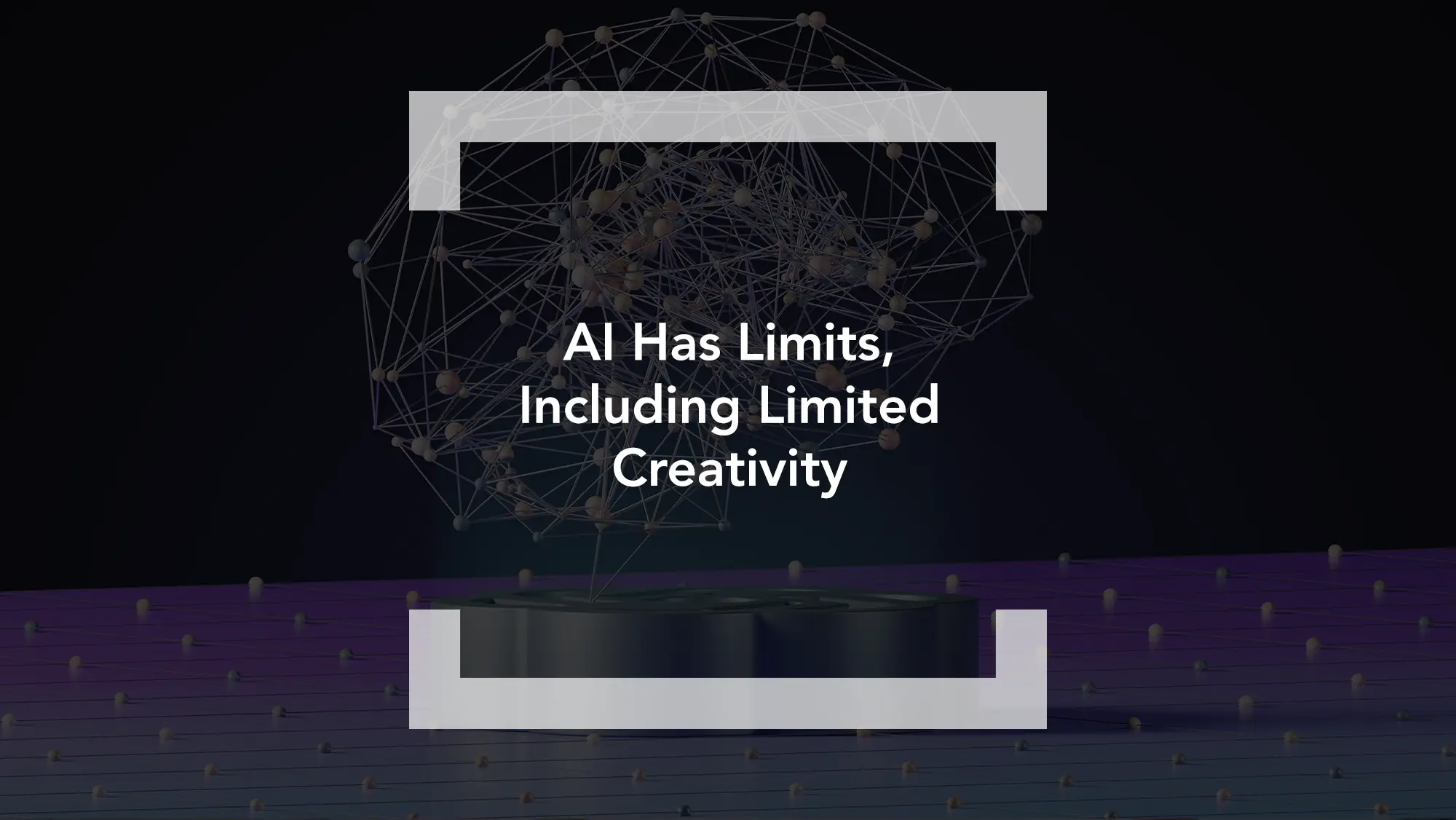

Business coach and copywriter Ed Gandia welcomed another coach, Sarah Greesonbach, to his podcast, and she provided an excellent example of ChatGPT’s limitations.
Greesonbach asked Gandia to prove he wasn’t a robot and asked, “If anger was a rainbow, what color would it be?”
Gandia’s answer? “Red is what comes to mind.”
The answer Greesonbach received when she asked ChatGPT the same question? “It's difficult to say exactly what color would be associated with anger, as different people might associate different colors with the emotion. Some people might associate anger with red, while others might associate it with other emotions, such as passion, or love. Ultimately the colors of an anger rainbow would depend on the individual and their own personal associations with various colors.”
Gandia's answer admittedly lacked creativity even though he's very creative. But ChatGPT's answer wasn’t poetry, either. It was more like a politician struggling to avoid answering a reporter’s question.
ChatGPT and other generative AI models lack creativity because they don’t think like humans. They mimic human creative activities by delving into vast libraries of human-generated material, following patterns they find there. They do it far more quickly than us, but with little or no real creativity.
Wait….Isn’t Creativity Just Pattern Recognition?
In many cases, human creativity results from seeing a pattern and doing something new with it. Sometimes it comes from working within boundaries, such as the time-tested framework of heist movies. Sometimes one idea collides with another: The phenomenally successful family game Exploding Kittens came about because the designer had the somewhat insane thought, “What if Russian Roulette was a non-violent, family-friendly game?”
So wouldn’t a technology that relies on pattern recognition, analysis, and construction be great at creative thinking?
Not necessarily. AI’s rely on what humans have already generated, so they tend to follow well-worn paths instead of making creative leaps or combining ideas.
As an experiment, Ogilvy Consulting CEO Carla Hendra prompted ChatGPT for replacements for Nike’s iconic “Just Do It” tagline. The results, she said, were “Really bad. Derivative, cliché, stale, and juvenile.” They included clunkers like “Take the lead” and “Never give up.” When she asked it to write song lyrics in Dolly Parton’s style, it did so in seconds. But the song was about a sweet home in Tennessee, because Dolly has famously written about her “Tennessee Mountain Home.”
AI is an amazing technology and may change everything about the way we live. But there are serious downsides to leaning too heavily on it for marketing content.
Sites may be downgraded
As we discussed in this previous blog, Google’s new guidelines are sending a clear signal that AI content will have a negative effect on page rankings.
Rights issues
The United States Copyright Office has ruled that works made with systems like ChatGPT cannot be protected by copyright; the work must be an original, creative work of a human author. Creating content you can’t establish clear rights to could lead to any number of unforeseen problems.
You still need to review all text
OpenAI, the company that created ChatGPT, has stated that “ChatGPT sometimes writes plausible-sounding but incorrect or nonsensical answers.” This is a recurring problem in AI systems, and developers refer to these errors as “hallucinations.” The errors result because the program’s goal of generating useful text causes it to simply make something up. When ChatGPT was asked to provide proof of a dinosaur civilization, it described discoveries of fossilized dinosaur tools and art. In response to another prompt, it cited a nonexistent article from the journal Science about surgical tools made from churros.
AI writes text faster than any human, but humans will still need to check the text. The longer the text, the more oversight is needed.
Research can be suspect
AI programs sometimes make research errors because they miss meaning or context in the base material. ChatGPT in particular has limited knowledge of events after September 2021. If you’re dealing with a subject that’s complex or frequently changes, you should proceed with caution.
With the marketing landscape changing every day, consider enlisting the experts at Cain & Company to help you create truly creative marketing and deploy it with proven strategies.